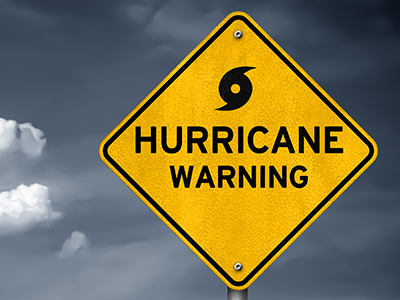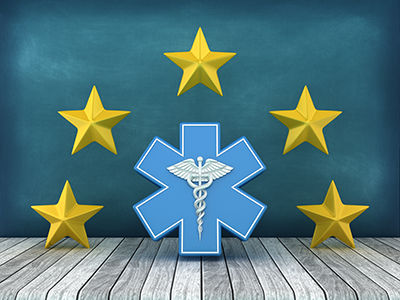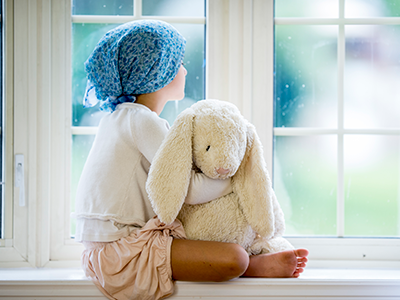When temperatures dip and snowflakes begin to fall, I – like many greater Washington, D.C.-area residents – am eager for the chance to dive under some cozy, warm blankets and spend the day curled up on the couch. Yes, I do love those restful days, but I also know that staying active and exercising throughout the frosty, snow-filled months is just as important.
As a pediatrician, I encourage families to take small steps every day toward ensuring their children grow up healthy and strong. During the winter months, getting enough exercise is one of the first areas we tend to overlook, but it’s critically important for strengthening growing hearts and lungs and preventing obesity. Choosing outdoor activities also can help limit the spread of colds and flu germs, which easily spread through close proximity and in enclosed spaces.
Parents often have concerns about how to keep their children safe and healthy while still being active outside during the winter, so here’s a list of answers to commonly asked questions to guide the way. As always, for specific questions related to your child’s health, I encourage all parents to seek advice from their pediatricians.
1. Is it ever too cold for kids to play outside?
In our region, generally the answer is no. If the temperature is above 10 degrees Fahrenheit, it is safe for children to play outside as long as they are bundled up appropriately to stay warm. Extremities – hands and feet – are particularly vulnerable to overexposure from cold temperatures and wind. Be sure to dress children in warm gloves or mittens, a hat and thick socks. Wool socks are preferable.
2. Is it safe to take my young child or baby out into the cold?
Parents are often hesitant about taking babies outside into the cold. However, families can enjoy outdoor activities together as long as the child is dressed appropriately, such as bundled in a warm snowsuit. For very young babies, I also recommend that moms use wearable baby carriers so little ones can snuggle up against a mom’s body for additional warmth.
3. What if my child has asthma? Should I still encourage him/her to play outside in the winter?
For families with children who have asthma, parents often are wary of physical activity – particularly in colder temperatures. All exercise is beneficial for these children. If you know that cold air can trigger your child’s asthma, using a scarf to loosely cover the mouth and nose can warm and moisturize the air the child breathes. If your child is having trouble with wheezing and other asthma symptoms, seek help from your healthcare provider so therapy is optimized and your child can enjoy playing outside.
4. Do kids need a winter skin care regimen?
Keeping the skin moisturized and protected with a layer of thick, fragrance-free moisturizer can help prevent chapping and keep skin from drying out. Be sure to target vulnerable areas, such as hands and cheeks.
5. Kids don’t always keep their gloves and mittens on. How do I know if their skin is overexposed? What should I do?
The fear of frostbite or overexposure is something many parents worry about. A warning sign of overexposure is if the hands don’t return to their normal temperature and pinkish color upon returning inside. If this happens, parents should warm their child’s hands between their own hands or place them under warm, but not hot, water. If hands still don’t return to their normal temperature and color, seek medical attention.
6. Should I be worried about winter sports injuries?
Parents should always ensure that their children are wearing well-fitting protective gear that each sport requires. One critical area of importance is preventing head injuries. Children should always wear a helmet while skiing and playing ice hockey. I recommend wearing a helmet during ice skating and sledding as well. If your child is in an incident involving a forceful blow to the head or body that results in rapid movement of the head, check for symptoms of concussion. Contrary to popular belief, a child does not have to lose consciousness to sustain a concussion. In fact, nine out of 10 children do not lose consciousness. Parents should watch for any change in their child’s behavior, thinking or physical function. A more detailed list of concussion symptoms can be found on the Children’s National website. If your child has any of these symptoms, seek medical care immediately.
7. My child really doesn’t like to play outside in cold weather. What should I do?
The aversion to outdoor winter activities can be caused by a variety of factors. For example, a child’s motor skills could be slightly behind, which could deter the child from wanting to participate in complex group activities, such as skiing or ice skating. The advice I typically give is to match the activity with the child’s interests and make it a family affair. If your children see you exercising and enjoying colder temperatures, they are more likely to as well. Specific to our region, consider hiking trails in Rock Creek Park, a visit to one of the many nature centers or a trip into D.C. for a walk around the monuments.
This blog post originally appeared in Northern Virginia Magazine online.
 https://riseandshine.childrensnational.org/wp-content/uploads/2025/06/boy-with-concussion-Feature.jpg
300
400
Danielle Robbins
https://riseandshine.childrensnational.org/wp-content/uploads/2017/11/childrens_riseandshine_logo.jpg
Danielle Robbins2025-06-11 11:47:322025-06-11 11:47:32Concussions in Autistic children
https://riseandshine.childrensnational.org/wp-content/uploads/2025/06/boy-with-concussion-Feature.jpg
300
400
Danielle Robbins
https://riseandshine.childrensnational.org/wp-content/uploads/2017/11/childrens_riseandshine_logo.jpg
Danielle Robbins2025-06-11 11:47:322025-06-11 11:47:32Concussions in Autistic children


 Ellen "Ellie" Hamburger, MD, cares for children from birth through adolescence, and has a particular interest in children with special needs and premature infants.
Ellen "Ellie" Hamburger, MD, cares for children from birth through adolescence, and has a particular interest in children with special needs and premature infants.


















Leave a Comment
Want to join the discussion?Feel free to contribute!